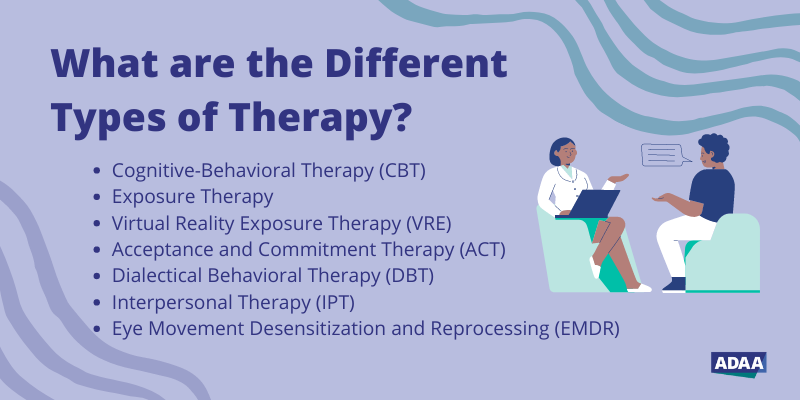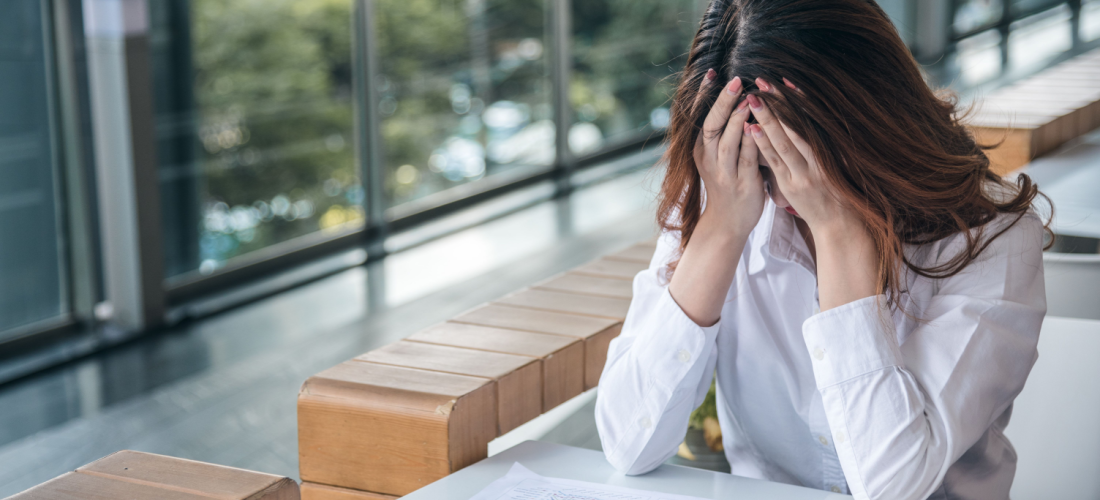Trusted counselling for anxiety disorder support by licensed therapists
Wiki Article
Exploring Different Techniques in Counselling for Anxiety Condition for Long Lasting Adjustment
When dealing with anxiety disorders, it's necessary to explore a selection of therapy strategies. Each approach supplies distinct insights and tools to help you manage your signs efficiently. You could discover that combining strategies can produce the very best outcomes. However, comprehending the subtleties of these approaches is essential to cultivating long lasting adjustment. What happens if the right combination could launch a brand-new degree of emotional health for you?Recognizing Anxiety Conditions: A Brief Overview
Anxiousness conditions, which impact numerous individuals worldwide, can greatly impact everyday life. You could experience frustrating feelings of worry or fret that appear uncontrollable. These sensations can lead to physical signs and symptoms like a racing heart, sweating, or also wooziness. Typical sorts of anxiousness disorders include generalised anxiousness condition, panic disorder, and social stress and anxiety problem. Each has unique signs, but they all share a tendency to disrupt your regular and relationships.Understanding the source of your anxiety is crucial. It might originate from genes, mind chemistry, or life experiences. Acknowledging your triggers can aid you handle your responses better. It's essential to remember that you're not alone in this battle. Lots of people deal with comparable obstacles, and looking for assistance is a strong action toward feeling much better. By learning more about anxiousness disorders, you're already on the path to understanding and managing your problem much more efficiently.Cognitive-Behavioral Treatment: Challenging Unfavorable Thought Patterns
In Cognitive-Behavioral Therapy, you'll begin by identifying the negative thought sets off that contribute to your anxiousness. You'll function on changing them with more favorable alternatives once you acknowledge these ideas. Together, you'll construct efficient coping methods to aid handle your anxiousness in day-to-day circumstances.Recognizing Negative Idea Triggers

When you experience moments of distress, identifying the certain triggers behind your adverse ideas can be vital in handling anxiousness. Begin by paying attention to circumstances that prompt feelings of concern or anxiety. Is it a crowded room, a future target date, or a conversation with certain people? Take down these circumstances in a journal. This will help you recognize patterns in your thinking. Likewise, notification physical feelings that accompany your unfavorable ideas, like a racing heart or rigidity in your breast. By pinpointing these triggers, you obtain insight into what's sustaining your anxiousness. Comprehending these connections is the very first step in challenging those ideas and eventually regaining control over your emotional actions.
Replacing Ideas With Positives
Testing unfavorable thought patterns is a necessary action in transforming your attitude and lowering stress and anxiety. You might commonly discover on your own entraped in cycles of self-doubt or devastating thinking. Instead of letting these ideas determine your sensations, practice changing them with favorable affirmations or practical options. For instance, when you think, "I can not manage this," shift it to, "I can manage difficulties one step at once." This straightforward modification can considerably impact your psychological state. On a regular basis recognizing and countering these negative thoughts assists produce a much healthier internal discussion. Bear in mind, it takes some time and effort, but consistently exercising this method can cause lasting change, encouraging you to face anxiety with restored self-confidence and strength.Structure Coping Strategies Together
Replacing negative thoughts is only the start of managing anxiety effectively. To produce enduring change, you need to develop coping approaches that equip you. Cognitive-Behavioral Therapy (CBT) aids you determine and test those unhelpful thought patterns. Together, you and your counselor can check out just how these thoughts effect your feelings and behaviors.Start by developing useful techniques, like journaling or mindfulness exercises, that permit you to face anxiety head-on. When you encounter your worries progressively, you'll learn to respond in a different way.
Mindfulness and Acceptance-Based Approaches: Growing Present-Moment Understanding
As you browse the complexities of anxiousness, integrating mindfulness and acceptance-based strategies can substantially enhance your ability to cultivate present-moment recognition. By concentrating on the present moment, you'll find that you can observe your ideas and feelings without judgment (Counseling services for anxiety). This practice helps you recognize your anxiousness without feeling overwhelmed by it.Engaging in mindfulness workouts, such as deep breathing, body scans, or directed reflections, enables you to ground on your own in your existing experience. Acceptance-based approaches urge you to accept your feelings as opposed to fight versus them. When you accept your sensations, they lose their power over you.Incorporating these practices right into your daily regimen can change just how you react to anxiousness. You'll create resilience and learn to navigate demanding situations with higher ease. Ultimately, cultivating present-moment awareness lays the foundation for long lasting change, equipping you to lead a much more satisfying lifeExposure Therapy: Facing Fears Slowly
Direct exposure therapy aids you face your worries in a gradual means, making it much less frustrating. You'll discover strategies to face anxiety-provoking situations action by action, while likewise building coping techniques to manage your responses. This strategy encourages you to take control and lower stress and anxiety over time.Gradual Direct Exposure Techniques

When facing anxiety, slowly facing your fears can be a powerful way to regain control. This method, referred to as progressive direct exposure, entails gradually revealing on your own to the situations or items that cause this post your stress and anxiety. Beginning with much less daunting situations and gradually function your means up to even more difficult ones. For example, if you hesitate of public speaking, you might start by talking before a mirror, then advance to sharing thoughts with a close friend, and at some point deal with a small team. Each step assists desensitize you to the anxiety, constructing your confidence with time. Bear in mind, it's vital to pace on your own and commemorate small success as you move with this process, strengthening your capacity to handle anxiety effectively.
Building Coping Techniques
Building efficient coping methods is important for taking care of anxiousness, specifically as you face your concerns gradually - Counseling services for anxiety. One effective technique is direct exposure treatment, where you begin by encountering your fears in a controlled way. Begin with much less frightening scenarios and gradually work your method up to even more difficult scenarios. This gradual direct exposure aids desensitize you to anxiety sets off, making them less overwhelming.Incorporate leisure strategies, such as deep breathing or mindfulness, to soothe your mind throughout direct exposure. Track your progression, celebrating tiny victories in the process to boost your self-confidence. Bear article source in mind, it's okay to take your time; the objective isn't perfection however consistent renovation. By building these approaches, you'll equip on your own to browse stress and anxiety and accept life a lot more totallyPsychodynamic Treatment: Revealing Source of Stress And Anxiety
Psychodynamic treatment checks out the subconscious mind, disclosing the source of your anxiety. By analyzing your thoughts, feelings, and past experiences, this method helps you uncover underlying problems and unresolved problems that may add to your existing stress and anxiety. You'll deal with a therapist to examine youth experiences, relationships, and psychological patterns that form your reactions today.As you gain understanding into these deeper layers of your subconscious, you'll begin to acknowledge exactly how past occasions influence your existing actions. This understanding can cause catharsis, allowing you to process feelings you could have suppressed.Through the healing partnership, you can likewise determine defense mechanisms that might have established with time, using a clearer course to change. Inevitably, psychodynamic treatment outfits you with the tools to resolve your anxiousness at its core, advertising long lasting change in your emotional health.Holistic and integrative Techniques: Incorporating Techniques for Greater Efficacy
Integrating different healing strategies can boost your trip towards taking care of stress and anxiety much more successfully. By combining components from cognitive-behavioral therapy, mindfulness methods, and holistic strategies, you can produce a personalized method that resolves your one-of-a-kind demands. You could utilize cognitive-behavioral techniques to test unfavorable idea patterns while integrating mindfulness workouts to ground yourself in the present moment.Additionally, discovering holistic methods such as yoga exercise or reflection can advertise leisure and lower anxiety signs and symptoms. This blend permits you to develop higher self-awareness and resilience.Experimenting with these varied techniques can help you uncover what resonates most with you. Bear in mind, it has to do with locating a synergy that functions, instead of adhering to a solitary strategy. This integrative technique not only supplies prompt relief however likewise fosters lasting skills for taking care of stress and anxiety, empowering you to recover control over your life.The Duty of Support Solutions: Building Resilience Via Connection
While it could appear that handling anxiety is a singular trip, having a strong assistance system can play a vital role in your durability. Surrounding yourself with empathetic close friends, family, or support system creates a safe room where you can freely share your experiences and feelings. You advise yourself that you're not alone in this struggle.These relationships provide inspiration and can supply functional coping strategies that have actually worked for others when you connect with others. It's also an opportunity to acquire viewpoint; friends can aid you see circumstances in different ways, reducing sensations of isolation.Moreover, emotional assistance cultivates a sense of belonging, which can substantially relieve anxiety signs. By leaning on your assistance system, you can build strength and tackle challenges better. Bear in mind, connecting for help signifies toughness, and it can make all the distinction in your trip towards taking care of anxiety.Regularly Asked Concerns
What Are the Typical Signs of Anxiousness Conditions?
You might experience uneasyness, tiredness, trouble concentrating, irritation, muscle tension, and rest disturbances. Physical signs and symptoms can include quick heart beat, sweating, and trembling. Recognizing these signs early can help you seek appropriate support and treatment.The Length Of Time Does Therapy Commonly Last for Anxiousness Problems?
Treatment for stress and anxiety disorders typically lasts anywhere from a couple of weeks to several months. It truly depends on your specific needs, progress, and the strategies your specialist makes use of to aid you manage your anxiety effectively.Can Medication Be Used Alongside Treatment for Stress and anxiety?
Yes, drug can absolutely be utilized alongside treatment for anxiety. Integrating both strategies often boosts therapy efficiency, aiding you handle symptoms while discovering underlying issues with therapy (Counseling services for anxiety). Constantly consult your healthcare here provider for individualized suggestionsAre There Self-Help Approaches for Managing Anxiety?
Yes, there are a number of self-help techniques for taking care of anxiousness. You can exercise mindfulness, participate in normal workout, keep a well balanced diet regimen, develop a regular, and utilize deep breathing techniques to aid reduce stress and anxiety signs efficiently.How Do I Know if I Need Professional Aid for Anxiousness?

Report this wiki page